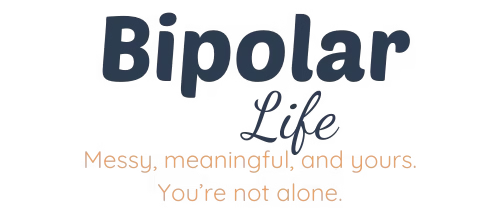Hope Is Not a Cure. It’s a Lifeline.
Mania isn’t magic. It might feel like it at first—like you’ve tapped into some secret superpower that sharpens your wit, magnifies your energy, and lights up the world around you. But behind that dazzling glow is a shadow few people see coming. Even hypomania—though not as intense as full-blown mania—can be just as scary and destructive in its own way. Mania can be seductive, even euphoric, but it’s not freedom. It’s a fire that burns bright—and burns out.
In this post, I want to talk about why I no longer romanticize mania, even though I sometimes miss the high. I want to be honest about what it gave me, what it took, and why hope has become something deeper for me: not a cure, but a lifeline.
The Seductive High
There’s a reason mania and hypomania can be so hard to let go of: they often feel incredible—at least at first. There’s a surge of confidence, creativity, clarity—and energy. You feel like you can do anything and everything all at once. Words flow. Ideas spark. Conversations become electric. You might sleep less, but you don’t feel tired. Everything feels possible.
In those moments, it’s easy to believe this is the “real you,” finally unchained. People often describe it as feeling alive for the first time in ages. There’s also a sense of clarity and understanding that seems to surpass everyday life—like you’re seeing patterns, truths, or connections others are missing. And honestly, that’s part of why it’s so dangerous. That high can make you feel invincible—like you don’t need meds, don’t need sleep, don’t need anyone’s concern. But beneath the surface, there’s often impulsivity, risk-taking, and a subtle disconnection from reality starting to build.
Impulsivity Risks
The energy of mania or hypomania doesn’t just stay in your head—it wants out. It pushes you to act fast, speak faster, decide quicker. And those decisions often come with real-world consequences. Spending sprees, reckless driving, quitting jobs, starting grand projects you can’t sustain, saying things you don’t mean—these are just a few of the ways impulsivity shows up. It can also look like taking on too much at once, saying yes to everything, convinced you can do it all—and then some.
At the time, it can feel like boldness or liberation. You might even feel proud of how fearless you are. But later—when the episode passes—you’re left holding the pieces. The bank account you drained. The relationships you strained. The shame, confusion, and fear that follow. And worse, sometimes you don’t even remember exactly why you made those choices in the first place.
The Crash
What goes up must come down—and with bipolar disorder, the crash can be brutal. After days or weeks of hyperdrive, your body and brain eventually hit a wall. The energy evaporates. The clarity dissolves. What felt like momentum now feels like wreckage. And often, you’re left to face the aftermath while buried in a deep, numbing low.
This crash isn’t always a slow descent. For some, it comes suddenly—especially after an episode where you’ve lost touch with reality. It can feel like slamming into the ground without warning. Everyone is different, and unfortunately, even one person may experience crashes differently from episode to episode. The unpredictability only adds to the fear.
This is where the guilt hits hardest. You remember the things you said, the money you spent, the promises you couldn’t keep. You wonder who you hurt, who saw, who’s still around. Depression doesn’t just slow you down—it can wrap you in shame and make it hard to believe the “high” ever happened at all. That contrast—between the version of you that felt limitless and the one now struggling to get out of bed—can be emotionally devastating.
Why I Don’t Romanticize It
It’s tempting to look back on mania or hypomania with longing—especially when you’re stuck in the heavy fog of depression. The energy, the creativity, the sense of being unstoppable… it can all feel like a version of yourself you want to return to. But I’ve learned the hard way that what looks like magic in hindsight often came with a cost I couldn’t afford.
The truth is, hypomania lied to me. It made me think I was better, healed, special. It convinced me to stop taking meds, to push boundaries, to ignore concern from people who loved me. It left behind damage I had to clean up—financial, emotional, relational. And recovery was different each time—sometimes slow and painful, sometimes confusing and disorienting, but never simple.
So no, I don’t romanticize it anymore. I might miss the illusion sometimes, but I don’t mistake it for freedom. I know now that stability, peace, and clarity—though they come quieter—are more valuable than any high that burns everything down on the way out.
Compassion for Missing the Highs
It’s okay to miss the highs. It’s okay to miss the feeling of being lit up from the inside, the moments when everything felt effortless and alive. Missing it doesn’t mean you want to be out of control again—it means you’re human. You experienced something intense and powerful, and part of you remembers the light even if it came from a fire.
What matters is how you hold that memory. With honesty. With boundaries. With compassion. You can acknowledge the allure without chasing it. You can grieve the parts of yourself you’ve had to let go in the name of healing. That doesn’t make you weak. It makes you wise.
Hope isn’t pretending mania never felt good. Hope is knowing you don’t have to return to chaos to feel whole again. It’s not a cure—but it is a lifeline. Hope allows you to find safe ways and methods to feel that clarity in your thoughts, emotions, and energy—without losing yourself in the process. And you deserve to hold onto it.
